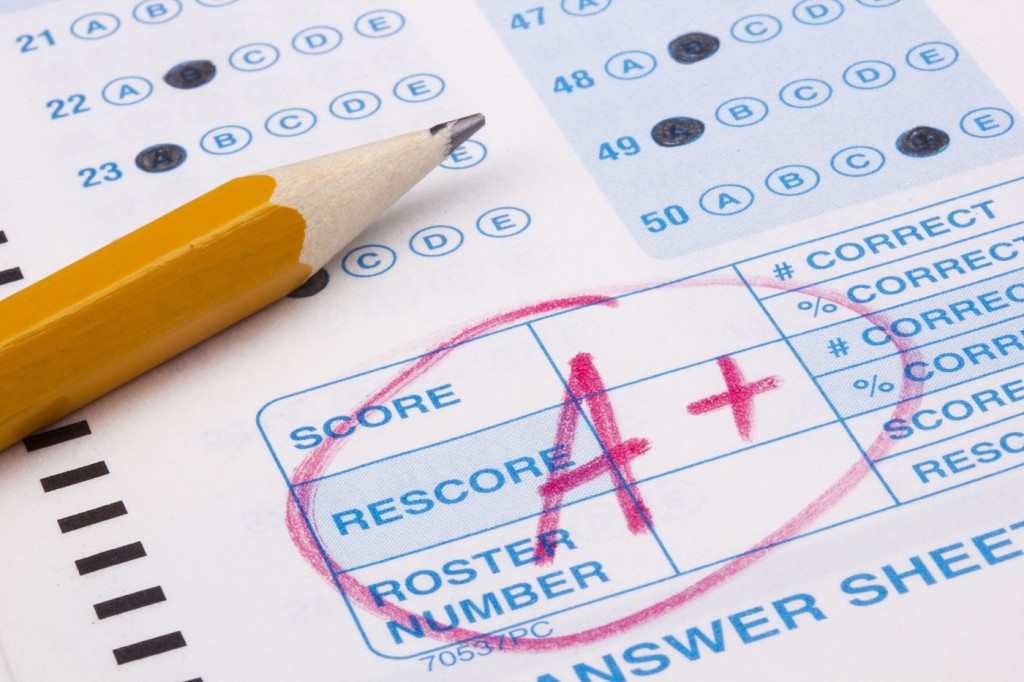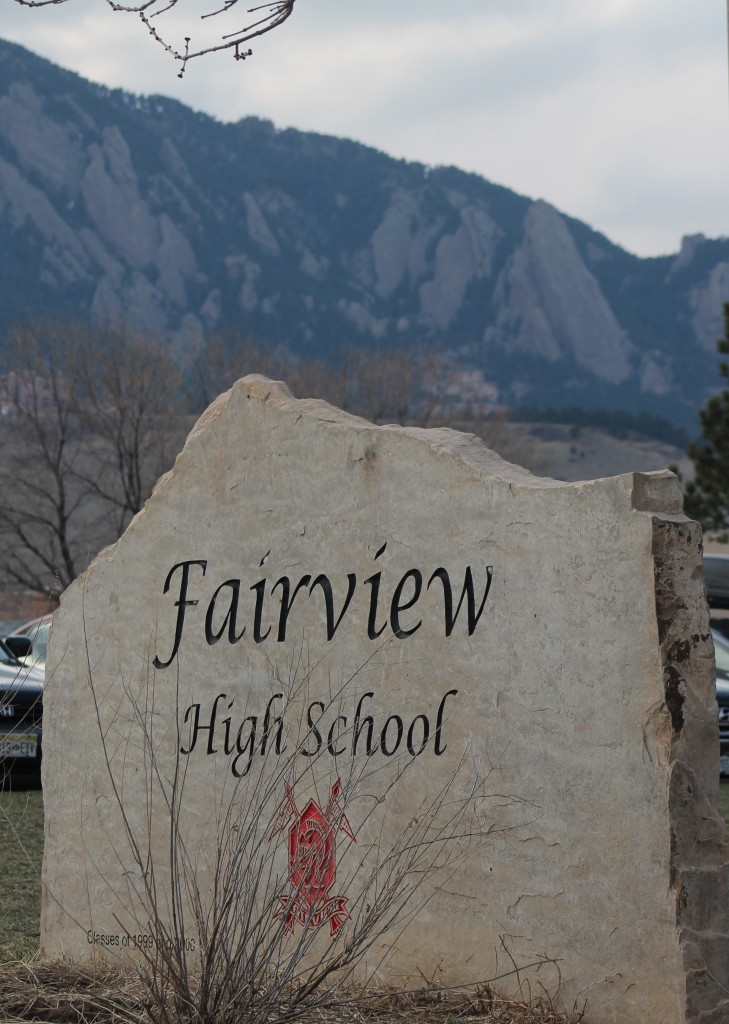 In just more than a month, hundreds of thousands of students across Colorado will take the Partnership for Assessment of Readiness for College and Careers (PARCC) test for the second year, along with the Colorado Measures of Academic Success (CMAS) tests.
In just more than a month, hundreds of thousands of students across Colorado will take the Partnership for Assessment of Readiness for College and Careers (PARCC) test for the second year, along with the Colorado Measures of Academic Success (CMAS) tests.
Also for the second year, thousands of students statewide (mostly high school) are expected to walk away from the tests as a political statement against standardized testing. However, the demographic and socioeconomic makeup of students seems to make a big difference in who does and who doesn’t care about the weeks-long process.
Two superintendents, Bruce Messinger who leads the 30,000 student Boulder Valley School District (BVSD) and Deirdre Pilch, who is in her first year as leader of the 25,000 student Greeley-Evans School District 6, have much different outlooks on whether or not their students show up for tests in April and whether or not they care.
Their districts are vastly different. Boulder has the benefit of being located in one of the highest socioeconomic regions of the state with a strong political background. Greeley has 64 percent of its students on free and reduced lunch, and 24 percent are English Language Learners.
“Yes, I think it will work with districts like Boulder and Littleton and Cherry Creek,” Messinger said about a lesser concern over walkouts. “Higher achieving districts are in a better place to do this. It’s really more about the testing itself. It’s a platform for Boulder and other districts where the motivation is clearer than the test itself.”
MOVEMENT OR STATEMENT?
The movement to fight against testing is important with teachers unions, who find the idea of tying test scores to teacher accountability is unacceptable, despite the fact that the legislation does not require the 50 percent to be comprised of state test scores and that they only be “included” in that requirement.
Mary Cathryn Ricker, the executive vice president of the American Federation of Teachers (AFT), said she always used testing during her career, but when they started being used differently, frustrations surfaced.
“It began taking more time away from my teaching to add these other tests that would predict how my students would do on a test or how students in the building would do on a test,” Ricker said. “When I started to see my teaching time be chewed away by a test is when I realized this feels really different. I absolutely believe it is a piece of (the opt out movement).”
AFT is the national chapter of one of the two major teacher associations in the United States. The other is the National Education Association.
PARCC tests are part of a consortium of eight states and the District of Columbia who have agreed to all administer the same tests aligned with the Common Core State Standards while CMAS is science and social studies assessments chosen by Colorado for its students in those disciplines.
Some see opting out as a political statement in an effort to do away entirely with most standardized testing.
“It caught steam when you started attaching test scores to the evaluations of teachers and schools and when the stakes got higher,” said Chris Stewart, director of outreach and external affairs for Education Post, a nonprofit advocacy organization. “Suburban and wealthy schools now being labeled as failures was a breaking point for many people. You saw a confluence of things happen; you saw unions, right-wing people and the privileged from pampered parents who wanted their schools to be labeled well — no matter what — all kind of aligned.”
Stewart says without testing, however, the most marginalized students are hurt.
“Every single civil rights lawsuit against the state of education has used test scores to prove its case,” Stewart said. “What you do with the data after you have it is what everyone is arguing about. All I’m arguing for is to have it in the first place.”
Others only want to reform the testing.
“There would be no reform movement, which is near and dear to my heart if it were not for data,” says Robert Pondiscio, Senior Fellow and Vice President for External Affairs at the Thomas B. Fordham Institute, an education think tank based in Ohio. “If there is no data from testing there is no charter school movement; there is no school choice movement; the moral authority of the ed reform movement at large goes away.”
DIFFERING DISTRICTS
For now, the two Colorado superintendents are doing what they see as best for their individual districts. Messinger said the protest in his district last fall when about 80 percent of students walked out, was OK.
“Boulder has a history of high performance,” he said. “We’re proud of that. Last year was kind of the tipping point. It went too far, and finally, students said, ‘senior level assessment is just really ridiculous, maybe these tests don’t matter at all and maybe they’ve gone too far,’”
Pilch, who until this year worked under Messinger as an assistant superintendent in BVSD, said she believes large opt-out number are generally isolated to areas with specific political motivations.
 “The political activism in Boulder is the greater factor,” she said. “Even in Boulder, the desire is not consistent across the district’s communities.”
“The political activism in Boulder is the greater factor,” she said. “Even in Boulder, the desire is not consistent across the district’s communities.”
She said despite whether they like them or not, community members and teachers in Greeley see a need for the tests.
“We don’t have the kind of political activism here, that I saw in Boulder,” Pilch said. “(Greeley teachers and community) are well aware of the intense scrutiny for student achievement. As a result, people have a deep understanding that this is a measure of how were doing and is significant for that. It’ is a piece of the culture here.”
Likewise, the districts handle opting out much differently.
In Boulder, students and parents have been able to go online for weeks and opt out of one or all of the tests. They simply have to let the school know whether they will or will not attend school that day – which has caused its own confusion.
Nearly 1,400 students had opted out of the testing by the close of the online reporting, Messinger said. And he expects more to notify their schools as the dates get closer. The number is significantly lower than last year.
Administrators are trying to figure out how to keep students who come to school busy during testing. At one point some suggested holding classes if the numbers were great enough. That caused even more concern that it appeared students were being encouraged to opt out so not to miss class.
Messinger made it clear that was not true. Messinger met with principals recently and said no new instruction is to take place during the exams.
“Obviously that’s going to look different for each school,” he said. “But we will not create a disadvantage for those who take the test.”
Messinger understands the frustrations, he said, adding he would like to see standardized tests be taken once at each level in elementary, middle and high school.
“Then use real-time (tests); get results back in real time,” he said. “I’m not anti-testing but for a good balance of testing. We are conflicted if these tests are going to have value. We’ll find out over time. But if we only have 20 percent take them, it’s not going to help us.”
Messinger said conflicting federal and state laws don’t help. The federal government mandates a 95 percent participation rate, but Colorado last year decided against penalizing students who don’t take it.
“We just don’t know enough about the PARCC in its second year,” he said.
Greeley hasn’t developed such an elaborate system to opt out and continues to encourage students to take the tests, but parents can notify their schools if they do wish to opt their students out.
District policy says parents must meet with an administrator to explain their reasons, but if a parent refuses, the district won’t enforce the policy. Schools would like as much notice as possible so they can adequately plan.
Despite the low opt-out numbers in Greeley, Pilch agreed everyone is still frustrated. Greeley has scaled back the amount of testing over the past three years, she said. And she continues to look for more ways to lessen the load on teachers and students.
“Across the system we are pretty worn out with the testing,” Pilch said. “It is a sense that this is excessive. We need to dial this back.”


